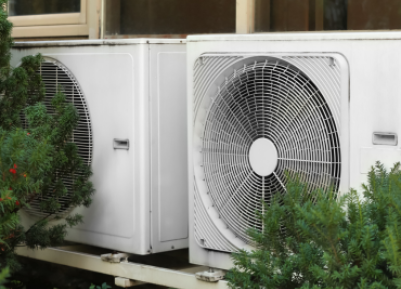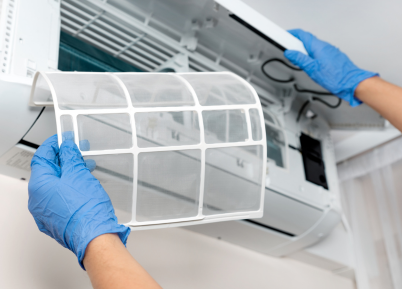How Do Most People Pay For New HVAC In Coachella?
Introduction
Installing a new HVAC system is a significant investment for any homeowner, often associated with numerous questions and uncertainties. Whether you're dealing with an aging system or simply wanting to upgrade to something more efficient, understanding the costs involved in installing a new HVAC system can empower you to make informed decisions. This comprehensive guide will break down those costs while also providing insight into what you can expect during the process of installation.
Breaking Down the Costs: Installing a New HVAC System in Your Home
When considering HVAC installation, it's essential to understand that the overall cost isn't just about purchasing a unit. There are various components and services that contribute to the total expenditure. From equipment and labor to permits and ductwork, let’s explore all aspects of HVAC installation costs.
1. Understanding HVAC Systems: What Are Your Options?
HVAC systems come in various shapes and sizes, each designed for different needs and budgets. The most common types include:
- Central Air Conditioning Units: Ideal for larger homes, these systems offer efficient cooling by circulating air through ducts.
- Ductless Mini-Split Systems: A flexible choice for homes without ductwork, providing targeted heating or cooling.
- Heat Pumps: Versatile units that can both heat and cool your home.
- Geothermal Systems: Although expensive upfront, they are highly energy-efficient over time.
Understanding your options helps you choose the right HVAC system tailored to your specific needs.
2. Initial Costs of Purchasing an HVAC System
The price of the unit itself can vary widely based on several factors:
- Type of System: As mentioned earlier, central systems generally cost more than ductless units.
- Brand Reputation: Premium brands may charge higher prices but often come with better warranties and longer lifespans.
- Energy Efficiency Ratings (SEER/EER): Higher-rated systems tend to be pricier but can lead to significant savings on energy bills.
It's crucial to balance cost with efficiency when making your selection.
3. Labor Costs for Installation
Labor costs form a significant part of the overall expense when installing an HVAC system. These costs typically include:

- Hourly Rates: Most HVAC contractors charge between $75 - $150 per hour depending on their expertise.
- Installation Time: A straightforward installation might take 4 - 8 hours, while complex installations could take longer.
Hiring a reputed contractor ensures that your installation complies with local codes and standards.
4. Ductwork Considerations in HVAC Installation
If your home doesn't have existing ductwork or if it requires replacement, this will significantly impact costs:
- New Duct Installation: Installing new ducts can range from $1,000 - $5,000 depending on home size.
- Duct Sealing/Insulation: Ensuring existing ducts are sealed properly prevents energy loss; this service may add another $300 - $800.
Always consult with an experienced HVAC contractor near you for an accurate ductwork assessment.
5. Permits and Inspections Required for Installation
Before proceeding with an installation project, check whether you need permits:
- Permit Costs: Depending on your location, permits may cost anywhere from $50 - $500.
- Inspection Fees: Post-installation inspections might also incur additional charges.
Make sure all legal requirements are met to avoid future complications.
6. Energy Efficiency Rebates and Incentives
Many utility companies offer rebates for installing energy-efficient systems:
- Check with local utilities about available programs—these incentives can significantly reduce upfront expenses.
Do thorough research on energy-efficient options; not only do they save money long-term, but they may also qualify for rebates.
7. Choosing the Right HVAC Company
Finding the best HVAC contractor near you is paramount:
- Look at customer reviews online—sites like Yelp or Angie’s List provide insights into service quality.
Engaging a trusted professional eases concerns about installation quality and future maintenance issues.
8. Maintenance Plans post-installation
Once you've installed your new system, maintaining it is crucial:
- Regular maintenance checks typically cost between $100 - $300 annually.
Consider signing up for a maintenance plan with your HVAC company; it often includes discounts on repairs and emergency services.
9. Common Issues Leading to AC Repair Needs
Even after installing a new air conditioning unit (AC), homeowners may face repair needs due to various reasons:
Understanding common problems helps in recognizing when you need AC repair services promptly.
10. Signs You Need Air Conditioner Repair Services
Being proactive about potential issues saves time and money:
- Unusual noises such as grinding or rattling
- Reduced airflow from vents
- Increased energy bills without any change in usage patterns
If you notice any signs like these, consider reaching out to local HVAC repair services quickly before further damage occurs.
11. How Long Can You Expect Your New HVAC System to Last?
A well-installed and maintained system can last anywhere from 10 - 25 years depending on type and usage patterns:
Regular maintenance plays a critical role in extending lifespan significantly!
12. Cost-Benefit Analysis of Upgrading Your Old System
Is it worth investing in a new system? Here’s how to approach it:
Pros:
Cons:
Evaluate these pros versus cons carefully before making decisions about upgrading your old unit!
13. Financing Options Available for New Installations
Not everyone has cash on hand for large purchases like new HVAC systems; fortunately, financing options exist:
1) Home Equity Loans 2) Financing through Contractors 3) Credit Cards

Consider which option works best according to interest rates and repayment terms before committing!
14. Tips for Reducing Overall Installation Costs
Here are some strategies that could help save money during installation without sacrificing HVAC air conditioning and heating services quality:
1) Obtain Multiple Quotes from Different Contractors 2) Schedule Installations During Off-Peak Seasons 3) Ask About Discounts or Promotions
By planning wisely ahead of time!

15. The Importance of Choosing Energy-Efficient Models
Investing in energy-efficient models pays off long-term; here's why:
-
Lower Utility Bills*: Energy-efficient units consume less energy leading directly towards lower monthly bills!
-
Environmental Impact*: Using less power contributes positively towards reducing carbon footprints!
These benefits make choosing energy-efficient models worthwhile investments!
Frequently Asked Questions (FAQs)
Q1: What factors influence the cost of installing an HVAC system?
The main factors include type/brand of equipment selected, labor charges based on complexity involved & ductwork conditions needing upgrades/replacements if necessary plus permits required by local authorities too!
Q2: How often should I maintain my new HVAC system?
It's advisable every six months; however yearly servicing generally suffices too! Always refer back towards manufacturer guidelines provided upon purchase!
Q3: Can I install my own HVAC system?
While DIY projects sound appealing financially speaking; hiring professionals guarantees safety compliance ensuring optimal functioning preventing potential hazards arising later down road!
Q4: What are some signs my air conditioner needs repair?
Look out for strange sounds emanating from unit along with fluctuating temperatures inside home & rising electricity bills despite normal usage patterns too!
Q5: How do I know if I need additional ductwork?
Consult experienced contractors who assess current setup determining whether modifications should occur based upon building layout & airflow efficiency requirements!
Q6: What should I consider when choosing an AC repair company?
Ensure they have proper licensing/certifications along with positive customer reviews verifying reliability alongside warranty options provided should anything go awry post-repair work completed!!
Conclusion
In conclusion, understanding the costs associated with installing a new HVAC system is essential for making informed decisions as a homeowner today! From equipment selection through labor charges all way down necessary permit fees—it’s vital knowing each aspect impacts overall budget considerably!! Don’t forget regular maintenance plays huge role prolonging lifespan guaranteeing efficiency saving dollars long-term too!!
If you're looking into "HVAC near me" options or "best hvac contractor near me," always take time researching thoroughly inspecting credentials ensuring peace mind throughout entire process ensuring comfortability living spaces remain intact year-round!